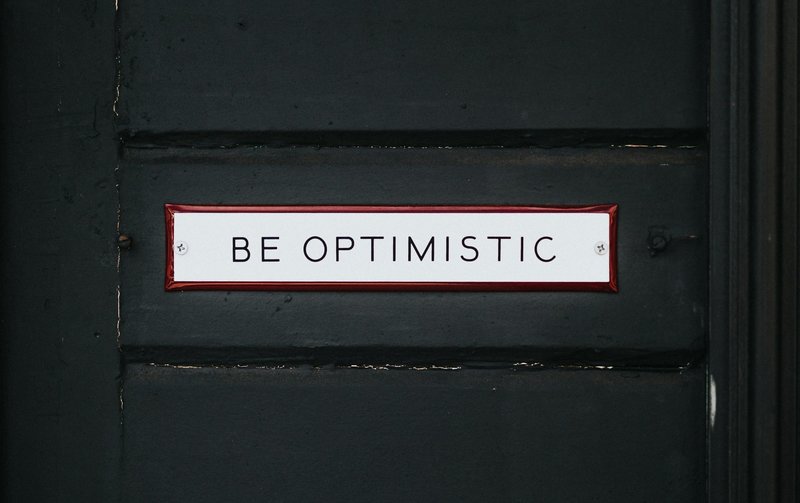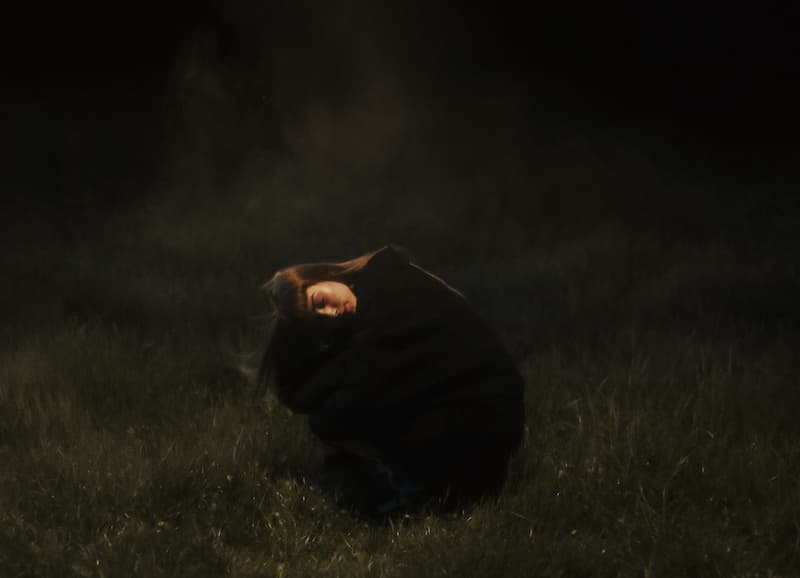No matter what the practice or teaching, ego loves to wait in ambush to appropriate spirituality for its own survival and gain.
– Chögyam Trungpa, Cutting Through Spiritual Materialism
As we progressively advance on our spiritual awakening paths, our Soul essence begins to blossom like a luminous flower deep in our hearts.
The more we clear away the dead, gnarled and overgrown beliefs, perspectives, and emotional baggage within us, the more clearly we feel our divine essence or True Nature.
However, like any garden, our metaphorical inner landscapes can be consumed by weeds, pests, and forms of pollution that strangle anything beautiful we have been nurturing.

Soul Work Compass Course:
Feeling lost, stuck, and trapped in repetitive cycles of pain? Discover your Soul's Compass to reclaim your purpose and find your path to freedom.
⭐️⭐️⭐️⭐️⭐️ "I have been a long-time subscriber to their website, and it’s one of my favorites by far ... It is rare to find this type of teacher." – Shar B.
Sometimes, we can even sabotage the growth blossoming within us (without being aware!).
Snares, ambushes, and traps exist in all areas of life and they keep us both stuck and also unable to tend to the garden of our lives.
In this article, I’m going to cover eleven of the main spiritual traps out there – and anyone (I mean anyone!) can fall into them.
Table of contents
- 11 Traps that Sabotage Your Spiritual Growth
- 1. The trap of spiritual bypassing
- 2. The trap of superiority
- 3. The trap of forcefully trying to wake others up
- 4. The trap of wanting to help others
- 5. The trap of wanting to revolutionize the world
- 6. The trap of meaninglessness
- 7. The trap of avoiding everyday responsibilities
- 8. The trap of self-victimization
- 9. The trap of the Savior Complex
- 10. The trap of attachment
- 11. The trap of relying on external answers
- Be Honest With Yourself
11 Traps that Sabotage Your Spiritual Growth

This isn’t a journey about becoming something. This is about unbecoming who we are not.
– Adyashanti, The End of Your World
The problem with the spiritual journey is that it is often laden with traps of many kinds. These traps, or ego defense mechanisms, are not just physical, but they’re also often (and mostly) mental.
As we process life primarily through the mind, we also tend to approach spirituality with the mind.
The issue with this mind-centered approach is that spirituality cannot be contained by the limitations of thought. Once spirituality is captured within a thought, it ceases to maintain its true essence and instead becomes a constricting belief or dogma.
In other words, spirituality loses its alive, ever-flowing essence once it is compartmentalized within the mind.
Want to get LonerWolf at the top of your Google search results?
Consider this analogy: have you ever felt immense awe and wonder in the presence of something beautiful and enchanting like a sunrise? The moment you stop immersing yourself in the feeling of the sunrise, and start taking a photo of it or describing it in a text message, is the moment you are no longer truly present with the sunrise. Instead, you’re filtering it through your thoughts or through a lens of some kind.
The same can be said with spirituality.
By the way, if you want to listen to myself and Mateo talk about one of the biggest spiritual traps out there, see the video below:
The more we use the mind to approach our Soul, the further away our Soul feels.
But the moment we drop our thoughts, connect with the heart, and allow ourselves to purely feel our Soul, suddenly we feel at home once again.
Think of it like this: when you chase the sun on the horizon thinking you’ll reach it, you never will, because it’s an illusion. But when you stop and feel the sun’s presence already shining on your skin, you will no longer chase anything.
It’s difficult for us, as mind-oriented beings, to become conscious of our thoughts, as we have been conditioned to identify with them since a young age. But once we slowly learn how to observe our thoughts and how they tend to sabotage our happiness, we experience true spiritual growth.
Below, I want to share with you eleven of the most common traps that we fall into on the spiritual path. I have personally experienced these pitfalls many times, and they have resulted in a lot of pain and struggle. See how many of these traps you can identify with:
1. The trap of spiritual bypassing

Spiritual bypassing is the practice of using spirituality to avoid, suppress or escape from certain emotions or situations in life. Common types of spiritual bypassing include:
- numbing one’s emotions through “spiritualized” repression and avoidance
- unhealthy obsession and attachment to the positive (e.g., positive thinking) and adopting a passive-aggressive “nice” mask
- debilitating judgment about one’s negativity or shadow self
- anger-phobia
- weak personal boundaries
- blind or excessively tolerant compassion (to the detriment of oneself and the other)
- forcefully trying to “kill” the ego and condemning it as “bad/evil”
- exaggerated detachment
- getting stuck in theoretical spirituality and dogmatic beliefs about “truth”
- denial of self-responsibility by placing it on another higher being (e.g., spirit guide, angel, ascended master)
- delusions of having arrived at a higher level of being (e.g: ego inflation and ‘makyo‘)
- using spiritual practices to escape unpleasant emotions; for example, using meditation to dissociate from emotions, rather than transmute them
Read more about spiritual bypassing.
Would you like to save this?
Your information will never be shared.
2. The trap of superiority

This spiritual trap manifests as the tendency to “look down” upon others who are not as “consciously advanced” or “awakened.”
The trap of superiority can be seen as a subtle feeling of “being better” than others who aren’t “spiritual.”
In more extreme cases, this trap can appear as the tendency to lash out at people who are still “asleep,” “blind” or “sheep” of society – or even become a spiritual narcissist.
This kind of reactive behavior can often be seen in people who have just “woken up” to the state of the world, yet have undergone minimal spiritual growth. We need to remember that everyone is doing the best they can at their level of consciousness. When the time comes, they will awaken too.
For a look into spiritual superiority from another angle, see my article: Why the New Age Movement is the ‘McSpirit’ of Spirituality.
3. The trap of forcefully trying to wake others up

Once we have awoken out of the “matrix” it’s common for us to desperately want our loved ones and fellow peers to awaken. We can see how much pain and delusion other people are in, and that riles up in us the intense desire to “show them the truth.”
However, often our attempt to forcefully awaken people misfires quickly. Even though we have good intentions, our desire to “save” others causes them to backlash in ways that infuriate both them and us. The less responsive they are to our pushy attempts to “wake them up,” the more frustrated and alienated we become.
Eventually, trying to force others to wake up ends up harming both ourselves and others. Not only that, but this trap generates a lot of anger and misunderstanding, which results in further ego ensnarement, sabotaging our spiritual growth.
Let people wake up when they are ready.
4. The trap of wanting to help others

This trap is closely entwined with the previous trap except it is more geared toward giving others advice.
There’s nothing wrong with wanting to help others, as long as you respect their personal boundaries.
But sometimes developing an expanded spiritual perspective gives the ego an opportunity to feel more “knowledgeable” than others still trapped in illusion. When unsolicited advice is given to others, the results can be disastrous (think anger, upset, offense, triggering trauma responses, etc.).
Wanting to help others can also be used as a way of escaping our need to help ourselves. Under the guise of being “spiritual” and compassionate, helping others can be just another form of spiritual bypassing.
5. The trap of wanting to revolutionize the world

Once we wake up to the lies and corruption present in our current societal structure, many of us want to desperately change society.
However, all too often many of us fall into the trap of thinking that freedom, honesty, and justice can be created by changing the external system.
For over 12 years, we've poured our hearts into creating free content on this website. Unlike many platforms, we believe this guidance should be accessible to everyone. If this post empowered you in any way, please consider making a donation to keep us going. Any amount (one-time or ongoing) makes a huge difference.
As a result, we buy into the “us versus them” and “divide and conquer” mentality that is a product of the ego’s tunnel vision. We don’t realize that we’re actually fuelling the corrupt system which depends on anger and chaos to thrive and survive.
Instead of understanding that all true change comes from an internal revolution, we get caught up in the pursuit of external revolution which is fragile and transient.
6. The trap of meaninglessness

Once we experience divine and transcendent states of being in which we become One with all, we can fall into the trap of spiritual nihilism after the experience passes.
In other words, once we realize, from the perspective of the Universe, that nothing we do ultimately matters because all is passing, we can fall into a depressive mindset.
Using truths such as “All is an illusion,” the person who falls for this trap tends to filter life through the mind. By mentally clinging to these truths, they become beliefs that the spiritual ego uses as an excuse to paradoxically feel separate from existence.
7. The trap of avoiding everyday responsibilities

Some people get so infatuated with the spiritual path that they avoid dealing with ordinary, everyday affairs. This form of escapism can lead to leeching off others, not paying bills, evading taxes, obsessing with “living off the grid,” etc.
When avoiding everyday responsibilities is worn as a badge of being consciously elevated or “more spiritual” this too is a form of egotism in disguise.
Avoiding ordinary responsibilities which are not perceived as being “spiritual enough” can also be a form of distraction that the ego uses to limit spiritual growth. The more concerned and obsessed you are with living an outwardly “spiritual” looking life, the more distanced from your inner work you become.
Remember the old Zen saying: “Before Enlightenment: chop wood, carry water; after Enlightenment: chop wood, carry water.”
We need to be humble and recognize that ordinary daily life is the perfect place to spiritually grow and mature.
8. The trap of self-victimization

Soon after we experience a spiritual awakening or kundalini awakening and wake up to the insanity of the world, it is common for us to get stuck in a pattern of self-victimization. We may start to perceive the world as a “prison” and other people as the “captives” or even “capturers.”
The shock of awakening may send us spiraling into anxiety and paranoia. Inevitably, we may start feeling like victims resulting in us blaming other people and the higher powers for how we feel.
The spiritual trap of self-victimization can be seen a lot on social media which often tends to become a pity party for spiritual fledglings.
At the end of the day, we need to see that it is actually our thoughts that cause us to suffer, not other people or situations. Once we can take self-responsibility for our perspectives and beliefs, we can become empowered once again.
9. The trap of the Savior Complex

This trap is related to the previously mentioned trap of wanting to help others.
The Savior Complex is adopted by people who feel a sense of superiority to the rest of humanity. Their sense of being “different” and more “spiritually elevated” can make them feel as though they are destined to fix the world.
The Savior Complex can most often be seen within the “lightworker/healer” circles who tend to put themselves up on pedestals, believing it is their cosmic duty to “save the planet.” This perception aligns with the belief that there is something “wrong” with reality and that other people are “broken” and need to be fixed (which is an ego perspective). This perception also leads to an inflated ego’s sense of “specialness” and self-importance.
The Savior Complex can go one step further and evolve into a Martyr Complex. Martyrs believe they must “bear the burdens” of others. Obviously, this is an extremely unhealthy way of living which is based on Christian conditioning (think of the story of Jesus).
By “carrying” other people’s pain, Martyrs bypass taking responsibility for their own happiness and enable other people’s immature behavior.
Read more about the Martyr Complex.
10. The trap of attachment

After experiencing profound and expansive mystical experiences which often come after significant spiritual growth, it is common for us to attach to the experience.
It can be painful to come down from these experiences and return back to usual, “unenlightened” reality.
We then can also attach to our “stories” and beliefs about spirituality. In other words, because the mind tries to make sense out of this transcendent experience, it will often latch onto various ideas as a form of control.
But the more we attach to our beliefs, stories, desires, and mental interpretations, the more we suffer. We forget that everything passes, even transcendent experiences. Enlightenment isn’t a destination, it is a complete surrender; a fundamental shift in the way we approach life.
Attachment is perhaps the most common trap that sabotages our spiritual growth.
On one hand, attachment to ideas helps us to grow, but ultimately, those ideas that we are unwilling to let go of end up stagnating our growth.
When ideas become protection blankets rather than catalysts for our growth, there is a big problem.
We need to realize that freedom cannot be experienced through the mind. Freedom is felt when we can be liberated from attachment to our thoughts and separate sense of self.
11. The trap of relying on external answers

As we progress through our spiritual paths it is normal, and beneficial, for us to seek out external support. Reading books, attending workshops and seminars, going to retreats, practicing holistic techniques, and getting a personal guru all help us experience spiritual growth.
However, after a while, it is common for us to become too dependent on external answers for our freedom and happiness. This pitfall can be seen in many spiritual seeker’s obsession and glorification of their gurus (in other words, projecting and disowning their divinity onto another).

Overwhelmed by where to begin?
The Alchemical Soul Work Workbook is your map and compass. It takes the guesswork out of deep inner work, empowering you with a step-by-step process to confidently find clarity and alignment with your true Self.
Eventually, as we become accustomed to constantly searching outside of ourselves for answers, we forget the presence of our own Souls. We forget that our ultimate source of guidance and wisdom comes from within us, and instead, we keep chasing things outside of ourselves that we believe will “enlighten” us.
We need to stop, pause, and reflect on our spiritual journeys. Are we seeking out first-hand experience or second-hand experience given to us by others?
Are we falling prey to spiritual materialism?
Don’t forget to look within for your answers as well because it is by connecting with your Soul (Soul Work) that you will ultimately experience freedom.
Be Honest With Yourself

In order to see through and extricate ourselves from these spiritual traps, we need to be radically honest with ourselves.
We need to be willing to see whereabouts we have indeed gone astray and have fed into the ego. We will also immensely benefit from exploring our Shadow Self and exploring our mistaken beliefs during this process.
Don’t worry if you have fallen into any of these spiritual traps. We all become ensnared by the ego.
It can be particularly difficult for us to see clearly when the ego “spiritualizes” certain beliefs and ideas. The more open, humble, and honest you are, the more you will be able to see through these tricks and liberate yourself.
Finally, don’t be afraid of the dark. Don’t be afraid of being wrong. Everything, no matter how painful, is a learning opportunity. At the end of the day, your Soul contains everything you have been searching for.
If you have any thoughts or insights about the spiritual traps that sabotage our spiritual growth, please share below!
If you need more help, we offer 2 powerful ways to guide you on your inner journey:
1. The Soul Work Compass Course: Break free from feeling lost and disconnected. The Soul Work Compass is a practical 12-step course that transforms soul loss into soul clarity. Discover your core values, heal core wounds, and create a personalized compass to guide every decision you make.
2. The Inner Work Journal Bundle: Heal at the root. This Inner Work Journal Bundle guides you through self-love, inner child healing, and shadow integration with 150+ prompts and activities. You get editable digital files to use on any device or print unlimited times. Not for lukewarm seekers, these journals are for those ready to transform.


Ur right everything is correct thanksksksks
Thoughts are connected to our bodies and our nervous systems (story follows state), and so to say our thoughts cause all our sufferings is to believe our mind and our thoughts are all powerful (and controllable)… a long time ago we recognized the importance of body and spirit and how it’s interconnected with our mind, but it’s a new phenomenon in spirituality that focuses solely on our mind and thoughts creating our suffering. To deny the role of trauma living in our bodies (which we know now through studies on inter generational trauma) is another ego complex, although it can feel empowering I’ve seen it result in a loss of empathy or compassion for people who experience challenging social “circumstances” which are likely to cause any human more intense trauma in the body/mind/spirit and suffering for example, a loss of recognizing our privileges, and other traps you’ve discussed (spiritual bypassing). Circumstances and our relationships with other beings do create emotions in the body (e.g. a feeling of grief comes from loss, a physical or spiritual or emotional violation may create a feeling of anger) and this is not all to be controlled by our thoughts. To say our thoughts create our suffering or emotions is to bypass the role of our bodies and nervous systems. They are in a feedback relationship. One is not all powerful.
My brother said to me
“But, don’t you want to help people?”
To which I replied,
“No! I only want to love them”.
A lady I met on the street once asked me “Are you a healer too?”
To which I replied
“I don’t call myself anything”.
Honestly, a lot of these would be avoided if people would just look for secular self-help advice more, even if it’s for practical everyday problems, like how to succeed in a career, how to do chores faster, or classic self-esteem and “believe in yourself” type guides. That is, the higher chakras (the heart chakra, the throat chakra, the third eye chakra, and the crown chakras) are often more discussed in spiritual circles, but for the lower chakras (the root chakra, the sacral chakra, and the solar plexus chakra), it usually is found within the realm of secular self-help. I’m not saying you should idolize people as gods or goddesses in this area, or necessarily have the same spiritual/relgious views as them (if they have any at all), but more that you have to acknowledge that even if they are flawed spiritually and morally everywhere else, you have to agree there are half-truths in the sense that their practical advice on life in specific everyday mundane contexts are still useful. Perhaps look up productivity advice, productivity books, or career books, if you have the extra time, perhaps, if this information is not already old news to you, like it is for most of the modern world.
I agree with this. The more reasonable and based in logic you can get the better. I just think that “woo woo” stuff is kinda too much sometimes and it’s important if you do delve into that stuff that you’re grounded in reality. Some spiritual stuff is just fun to think about but if you’re seriously pursuing mental health then you gotta try not to mix beliefs into it for starters. Then as you heal you can mix in some more, with reason.
Yup, have definitely been through all of these at some point, and very recently. Have become very aware of these and have symbolically “fallen on my butt” realizing that that was all not truly who I am.
I seem stuck at the pessimistic nihilist stage but am in and out of all the others too. Lost, I guess, just battling on as you say, with the knowledge that we’re all doing as well as we can, considering whatever we’ve lived and experienced before.
Great article! I had to laugh – yep, gone through all of these and I still don’t feel especially spiritual, lol. I find myself in a kind of nihilism now. I’m still curious about what else I might find, still willing to explore, but I seem to be less invested in it. Wonderful comments. I agree with John Bernstein – kindness, respect, allowing others to walk their path and offering them company, and trying hard to cut myself some slack. I have no idea where I am on the path of ascension/evolution, but I think I’m still on it. :-)
You and Mateo are delightful. Thank you so much for your presence here at this time.
I hear you, Debbie! I’d consider myself a highly “unspiritual spiritual person” hahaha
Yes so true I almost got into spiritual materialism, but thank God this came in am sorry
Thanks for your wonderful humility, Obiasogu ♡